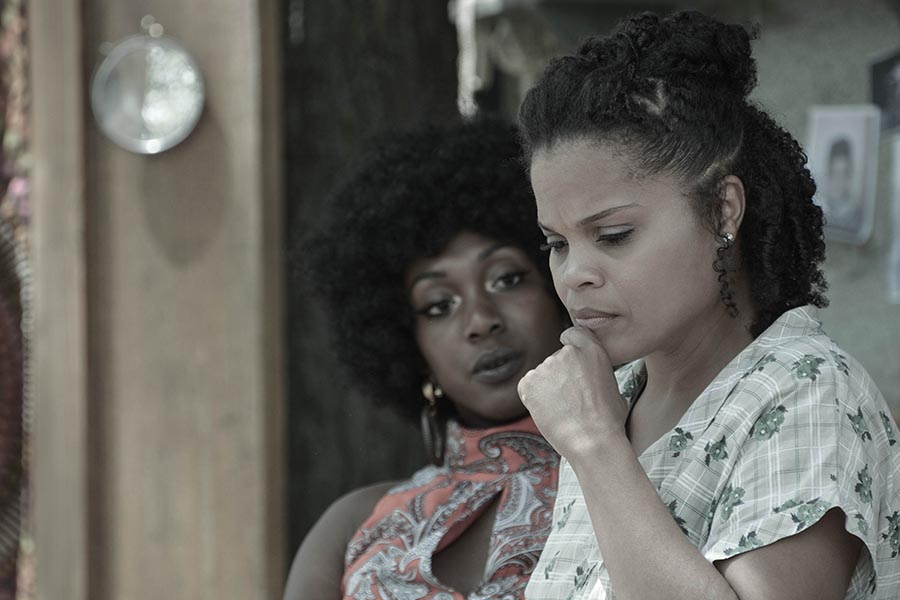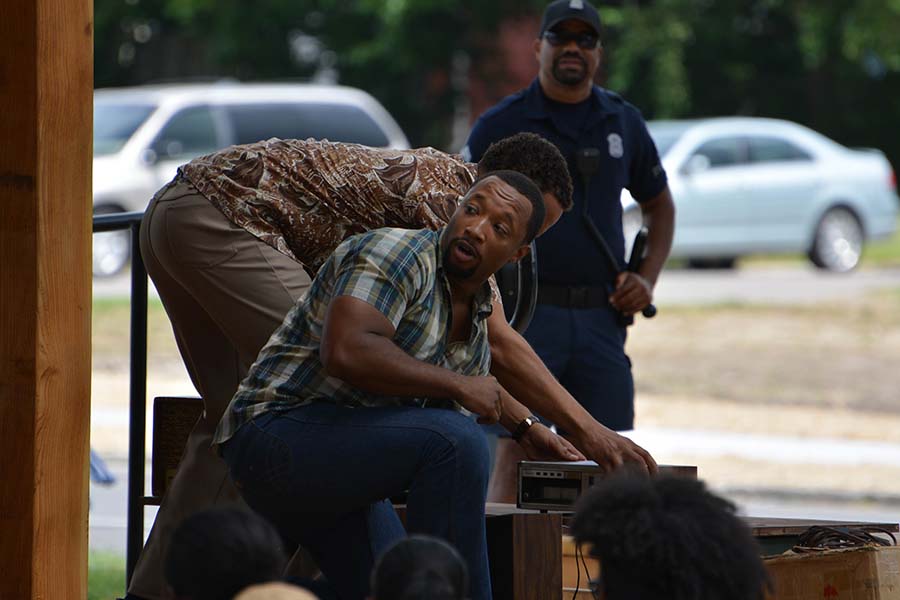This summer the city of Detroit is commemorating the 50th anniversary of its infamous 12th Street riots with a number of cultural events. The centerpiece of the commemoration is a sort of homecoming for a local-born talent: a free city-wide tour of Dominique Morisseau’s Detroit ’67, a play by the Detroit native that chronicles the 5-day civil disturbance in July, 1967 that led to the deaths of 43 people (and served as the subject of the controversial recent feature film Detroit).
Produced by the Detroit Public Theatre, the Detroit ‘67 tour has been attracting audiences at performances across Detroit since July. The tour continues through Oct. 14 at public high schools, community centers, and outdoor landmarks.
“When we were forming the company, we knew that we wanted to produce Dominique Morisseau’s work,” says DPT cofounder Courtney Burkett. “She’s a native Detroiter.”
The company ended its inaugural season last year with a staging of Detroit ’67, in a coproduction with Baltimore Center Stage made possible with the playwright’s support.
“It is important to me to have my work be introduced to my city in a particular kind of way,” says Morisseau, who also serves on DPT’s board. Morisseau has been instrumental in attracting an audience for the new company and in bringing Detroit residents into the fold of its programming. She also says that more than 300 of her family members in the Motor City helped DPT’s co-production of Detroit ’67 gain momentum last year.

“She’s been very involved in that she has a lot of connections with a lot of community groups and she gets the word out,” says Burkett of Morisseau. “She has very deep roots in this city.”
Last year, Morisseau even organized a panel discussion to garner attention for the show. “To make my city aware of DPT’s efforts, and the production of Detroit ’67, I brought home Ruben Santiago-Hudson, André Holland, and Blair Underwood,” she says. “They all came to Detroit to have a public conversation with the city at the African American History Museum, and to bring a spotlight on the work I am trying to do in Detroit and what DPT is trying to do.”
A grant from the John S. and James L. Knight Foundation provided the necessary funds to remount the production this summer as part of the city’s 50th anniversary commemoration. DPT usually presents its work at the Max M. & Marjorie S. Fisher Music Center in downtown Detroit, but this grant allowed the production to be mobile and free of charge for audiences.
“There are some barriers to getting downtown, buying tickets, and getting to the theatre,” says Burkett. “So we wanted to make the play available to people who might not be able to get there to see it.”

Actor Brian Marable is reprising his role as Sly, and the touring set was available throughout the three-week rehearsal process, which helped to streamline the preparation.
“We kind of imagined it being a cross between a staged reading and a fully realized production, and it ended up falling much more on the side of a fully realized production,” says Burkett, who is directing. “It’s pared down enough that it all fits on a 12-foot truck, but we have everything—the glassware, the couches, the furniture, the record players. And the costume design is really beautiful as well.”
The tour kicked off at Gordon Park, where the play is actually set, on the exact day of the 50th anniversary of the 1967 riots. The first performance was in collaboration with the Detroit Historical Society, and both the mayor and chief of police spoke to the audience after the play. “We were thrilled that theatre was part of the conversation,” says Burkett.
“I am so proud that this work is getting around the city,” says Morisseau. “It is so important during this time of reflection in our hometown. It really does speak to the larger mission that I have of making the work accessible to all people, changing the dynamics of audiences, and making sure that everyone feels like theatre is for them. It makes a world of difference when I get to hear my family and people who I grew up say they got to see this play in their park, in their community, and how much it meant for them to be able to do that. There’s no greater fulfillment of purpose as an artist to have something like that happen.”
The hot-button conversations happening around the city because of the 50th anniversary have certainly attracted new audiences for the company. DPT’s 2017-18 season will include a production of Morisseau’s Skeleton Crew, about a makeshift family of factory auto workers in Detroit during the recession.
“Eventually I would love for all of my work to make it home,” says Morisseau, “because it is the foundation of where my writing comes from.”


